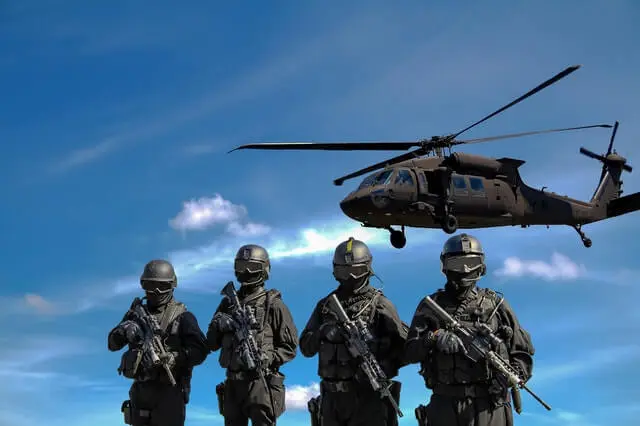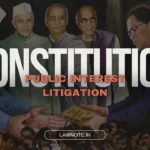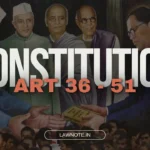Introduction
The Indian Constitution grants Parliament specific powers to modify or restrict the fundamental rights of individuals who are part of certain state forces. These powers, laid out in Article 33, ensure the proper functioning and discipline of these forces. The armed forces and those in intelligence, public order, or telecommunications roles are granted certain exemptions from the rights conferred to civilians.
What Does Article 33 Say?
Article 33 of the Indian Constitution allows Parliament to enact laws that can restrict or modify the fundamental rights of certain individuals. This is primarily done to ensure that discipline and responsibility are maintained within the forces. The forces affected include:
- Members of the armed forces
- Forces responsible for maintaining public order
- Personnel in intelligence or counter-intelligence bureaus
- Individuals working in telecommunications connected to these forces
These limitations are critical because they ensure that individuals in sensitive roles can perform their duties without compromising national security or public order.

Also Read: Public Interest Litigation
Why Does Parliament Need This Power?
The nature of military and intelligence services demands a unique structure of discipline. If all fundamental rights, like freedom of speech or the right to form associations, were fully available to military personnel.
It could undermine the operational efficiency of these forces. Hence, Parliament is empowered to limit these rights to ensure that forces function optimally and maintain discipline.
For instance, the Supreme Court of India has highlighted in several rulings that court-martial. Which handles military discipline, and has the same responsibility as civil courts in protecting the rights of the accused. However, they are specialized in preserving the military’s order.
Article 34: Martial Law and Indemnity
Article 34 comes into play when martial law is declared. Martial law involves the temporary substitution of military authority for civilian rule in times of extreme emergency. During such times, the Constitution allows Parliament to indemnify (protect) individuals in service of the Union or the State for actions taken to restore order under martial law. This indemnity ensures that military officers and others do not face legal consequences for actions that were necessary to maintain public order.
However, it’s essential to understand that the Constitution does not provide explicit provisions for the proclamation of martial law. This means martial law does not automatically suspend fundamental rights. Such as the right to file a habeas corpus petition, which challenges unlawful detention.
Article 35: Parliament’s Exclusive Legislative Power
Article 35 ensures that Parliament, not state legislatures, holds exclusive power to make laws regarding certain constitutional matters, including laws under Article 33. This article reinforces the central government’s control over crucial areas like national defence and public order, ensuring consistency in how these laws are applied across the country.
Conclusion
In essence, Articles 33, 34, and 35 of the Constitution reflect the careful balance between ensuring national security and maintaining individual rights. While members of the armed forces and similar services are subject to certain restrictions, these are implemented with the broader goal of ensuring that India’s defence and intelligence apparatus operates effectively and securely. Parliament’s power in this regard is critical for maintaining order, discipline, and national security, while still adhering to constitutional values.
FAQs
1. What is Article 33 of the Indian Constitution?
Article 33 grants Parliament the authority to modify or restrict fundamental rights for members of the armed forces. Public order forces, intelligence personnel, and telecommunications staff associated with these services maintain discipline and ensure the proper discharge of duties.
2. Why does Parliament have the power to restrict rights for armed forces personnel?
Parliament can restrict rights to ensure military discipline and operational efficiency. Full civilian rights may interfere with the sensitive nature of military and intelligence work. So certain limitations are necessary for national security.
3. Does martial law suspend fundamental rights in India?
Martial law does not automatically suspend fundamental rights. However, under Article 34, Parliament can indemnify individuals for actions taken during martial law to restore public order. It does not allow the suspension of rights like habeas corpus unless Parliament provides otherwise.
Also Read: Right To Constitutional Remedies Article (32 – 25)
Reference: constitutionofindia.net

